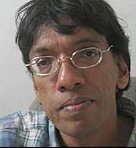A Brief Colonial History Of Ceylon(SriLanka)
Sri Lanka: One Island Two Nations
A Brief Colonial History Of Ceylon(SriLanka)
Sri Lanka: One Island Two Nations
(Full Story)
Search This Blog
Back to 500BC.
==========================
Thiranjala Weerasinghe sj.- One Island Two Nations
?????????????????????????????????????????????????Monday, February 24, 2014
The Paradigm Shift That Northern Chief Minister Calls For
By Jehan Perera -February 24, 2014
Most of the political analysis at the present time revolves around the forthcoming session of the UN Human Rights Council in
Geneva. The latest are the two options that the government appears to
be developing, wooing supportive countries to come up with a
counter-resolution, and wooing South Africa to assist in the formulation
of a truth and reconciliation process
as an alternative to an international investigation into war crimes.
But there are also other important developments taking place in the
country which require equivalent analysis. One of the most important of
these is the relationship between the central government and provincial
council and the sharing of power between them. The root cause of the
war, which has led to the charges of war crimes,
was the dispute about the sharing of power between the
Sinhalese-dominated central government and the Tamil-majority parts of
the country, specifically the Northern and Eastern provinces.
The issue of power sharing between the central government and provincial
councils has come to the fore since last September, when the Northern Provincial Council began
to function for the first time since the system of devolution was set
up 26 years ago. At the present time, it is the only opposition-led
provincial council. The other eight provincial councils are all
controlled and dominated by the government. The Northern Provincial
Council is acting as a true opposition, seeking to expand its powers and
to challenge the central government’s unwillingness to engage in even a
limited form of power-sharing. The views therefore that emanate from
the Northern Provincial Council are a challenge to the government. The
most recent challenge is the resolution passed by it that calls for
direct air links between the Jaffna and the southern parts of India as
well as the development of the harbor in the Jaffna peninsula that could
facilitate trade links with India, which the government argues are
outside the purview of the provincial councils.
The ideal situation would be one in which
the central government and provincial councils do not work in
opposition to each other in a zero-sum game, in which one side gains and
the other side loses. The better way forward would be for all sides to
gain through cooperation. But for this to happen there needs to be a
change of spirit. There is no doubt that external relations are the
preserve of the central government. But the provincial councils are
entitled to contribute to the policy discussion, which has been the case
in this instance. The Northern Provincial Council is not setting up
its own airports and harbours, but is calling on the central government
to do so. The approach that the central government ought to take and
the spirit that should guide it was dealt with at a conference on
Socio-Economic Development in the Northern and Eastern Provinces
organized by the University Grants Commission of Sri Lanka at which top
academics made presentations.
Read More

